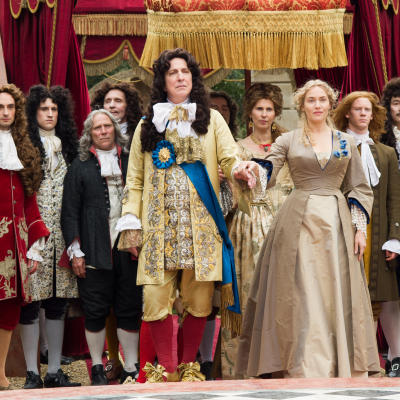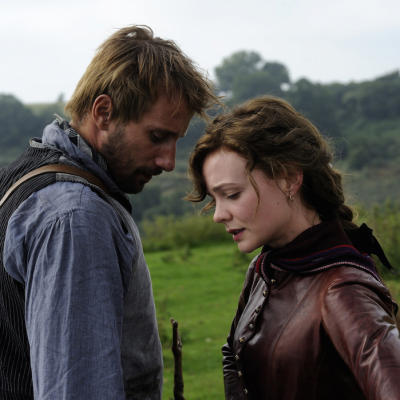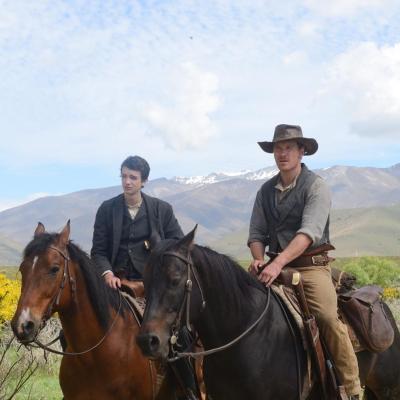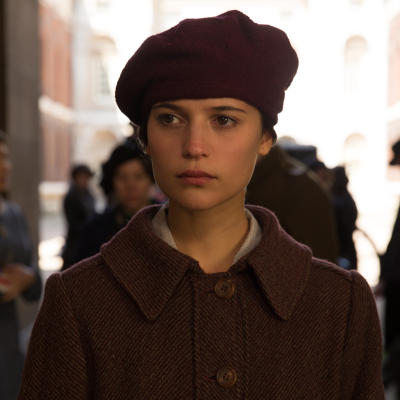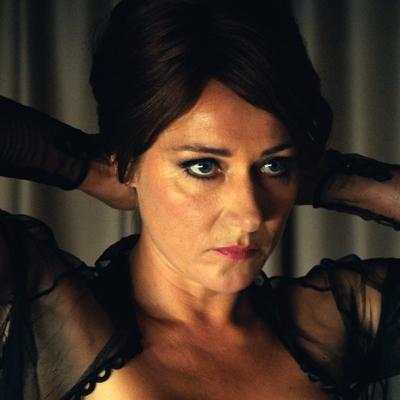Taking on a work with the stature of Gustave Flaubert’s Madame Bovary is surely difficult for any filmmaker. The novel is a psychologically complex erotic tale, full of sparkling prose and an unusual narrative pace. Given that none of its many film adaptations have really worked, Madame Bovary seems almost impossible to translate effectively for the cinema.
At first it seems as if writer director Sophie Barthes and her screenwriting collaborator Rose Barreneche are presenting a new spin on the tale, particularly in its first part, where the film focuses more on the titular Emma Bovary (née Roualt) rather than the efforts of her husband, the country doctor Charles Bovary, to woo her. The changes in focus seem interesting at first, but never really resolve into anything. The novel’s themes of the stifling, corseted effects of marriage on a woman in the mid 19th Century, and the fulfilling of her base desires are ripe for a keen-eyed feminist retelling, but this is not it.
Australian actor Mia Wasikowska plays Emma, and with her strikingly imperfect beauty she is physically a perfect fit for the role. Her performance, however, even if she hadn’t opted to speak all her lines in a bizarre American accent, verges on mechanical. None of the actors – in a cast including the very talented likes of Paul Giamatti and Ezra Miller – shine in this film.
Perhaps this is the fault of the screenplay, which seems rushed and protracted. The source novel from which the film is adapted is written in a style of free indirect discourse, which moves freely between the internal and the external – between characters’ thoughts and their actions. Without the added background provided by third person narration, these characters come across as two-dimensional and, at their worst, extremely unlikeable. The cast have very little to work with other than clumsy exposition and stilted dialogue.
As Madame Bovary attempts to escape the confines of a marriage that was not what she expected by taking solace in buying expensive trimmings for her house, or in the arms of other men, her life spirals out of control. Most people watching will likely not care what becomes of Emma Bovary by the end (though we already know thanks to a contrived opening scene that frames the film as a flashback). The film is completely lacking in passion, and therefore lacking in tension or urgency.
On a technical level too, the film is a struggle. There are some beautiful period sets that toe the line between shabby and glamorous – a perfect fit for the story – and some gorgeous period clothing – though some of it may be slightly anachronistic – but the handheld cinematography is dull and muddy, so you can’t even really appreciate what the film does get right.
Madame Bovary is proof that some works should just be left alone. It’s not a trainwreck, but a complete disaster would have been more exciting than this dull, turgid slog of a film. It is clear what Sophie Barthes and Rose Barreneche were trying to achieve with this film, but they have not even come close to succeeding. Read the book, avoid the film.
Madame Bovary opens in Australian cinemas on July 9.
